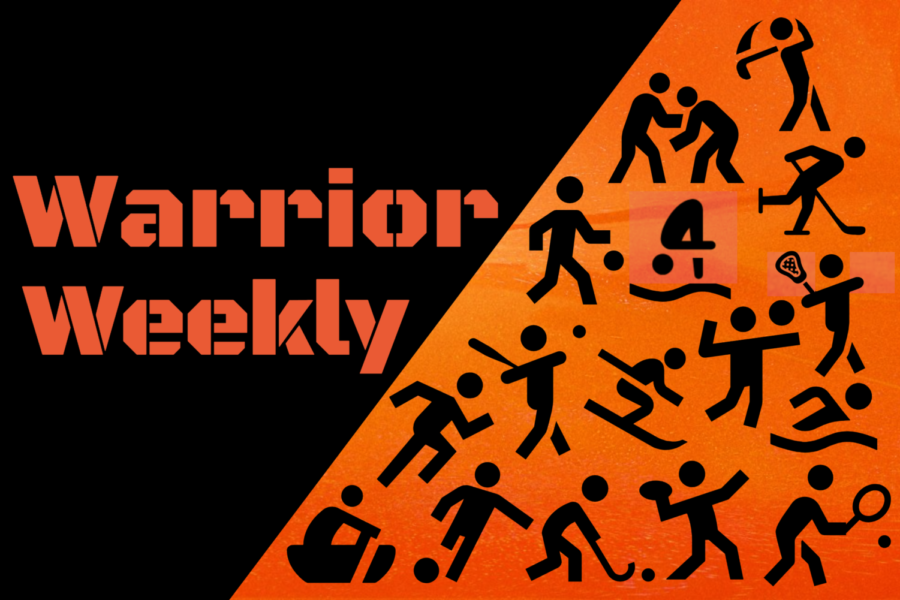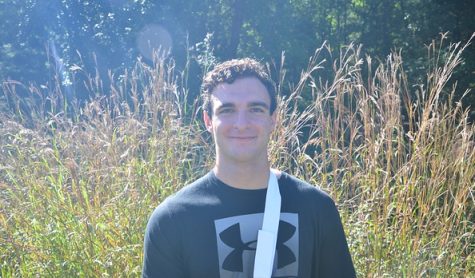Coronavirus’s Impact on the Basketball World
Credit: WSPN Staff
WSPN’s Dante Coppola discusses the impact the Coronavirus pandemic has had on sports, specifically in basketball.
March 24, 2020
After it became public knowledge that Jazz center Rudy Gobert tested positive for COVID-19 on Wednesday, March 11, the NBA took the unprecedented step of suspending its season. The NHL followed suit, and the MLB chose to end spring training early. Particularly for the NBA, a decision like this has many consequences.
Which Teams are Most Affected?
Every team is obviously impacted by the league shutting down, but some organizations are dealing with greater problems. The Raptors, Pistons, Celtics, Knicks and Cavaliers all played against the Jazz in just weeks prior to the league shutting down. Each of those teams chose to self-quarantine, and only one player tested positive from any of those teams so far. The Wizards and Knicks also chose to self-quarantine as a precautionary measure, since they both played them much earlier.
Even the final game of the season between the New Orleans Pelicans and Sacramento Kings, neither of which were in contact with the Jazz, was canceled because referee Courtney Kirkland worked a game between the Jazz and Raptors, though tests have recently shown he is negative for coronavirus. It’s also worth remembering how the exposure of those teams affects the fans. Before realizing they were exposed to the virus, players on the Raptors and Jazz made appearances at public events, meaning many fans could be the receiver of unwanted germs. It is even reported that a kid got COVID-19 from an autograph he received, though it is honestly unknown if that is truly how they got it.
How to Resume Competition
We still have no idea how long the NBA season will be on hold or whether it will resume at all. It will run a minimum of a couple of weeks since that’s the mandated length of quarantine for people who are suspected to have been exposed to coronavirus. But, realistically, the league won’t be able to return to normal operations that quickly.
Everyone involved, from team owners, players and even those who work in the buildings, will be keen to salvage as many games as possible. Yet it seems highly unlikely the league will be able to play the remainder of its regular-season schedule if things get pushed back too far. There are too many moving parts to work with: rescheduling the games in pre-booked arenas, reshuffling TV broadcast schedules, rewriting contracts that are set to expire on June 30 and pushing back or condensing the draft, free agency, summer league, training camp and potentially even next season.
The most likely option seems to be the league deciding to call off the rest of the regular season and start with the playoffs. But would teams even have adequate time to prepare after several weeks off? The league is set for a very difficult decision, with no obvious answer in sight.
Salary Cap Scramble
Each season, the salary cap and luxury-tax threshold are set based on an internal review of the league’s income from the previous NBA campaign. There’s still a ton we don’t know about how the coronavirus crisis is going to play out for the league, but it is more than likely it will result in a significant loss of revenue. This could mean a decrease in salary cap for the next season, something that has only happened twice since the cap was put into place in 1984.
This following offseason, many contracts will be on the line. Even MVP front-runner Giannis Antetokounmpo is a free agent and was expected to get the supermax from the Bucks. However, with the salary cap situation, will the team even extend him that deal? Even if they do, would he take it now that it is unknown how the team would’ve done during a normal season? The same goes for Anthony Davis, who could potentially leave the Lakers this offseason under the same situation.
The players and owners can negotiate the 2020-21 cap and potentially come to an agreement on a figure that better reflects what the league’s income would have been in a season that wasn’t interrupted by a global pandemic. If the two sides can’t come to an agreement, the CBA dictates that next season’s cap be set based on this season’s greatly reduced revenue, and it could set the league back greatly.
Lost Wages for Employees
NBA owners may lose income as a result of this hiatus, but they will most likely try to ease those losses by tightening their belts. Luckily, that will not be the case with at least the players, with the NBPA publicly stating “players will continue to receive salary on their designated paydays.”
But there are more vulnerable NBA employees – including security, custodial, and concession workers at arenas – whose wages depend on games being played. Two-thirds of the league’s owners have either announced a plan or are currently working on a plan. Some players have decided that they can’t wait on their owners and have taken it into their own hands. Rudy Gobert has paid at least a part of the Jazz employees’ wages, rookie Zion Williamson is doing the same for the Pelicans and the Magic is receiving assistance from players Mo Bamba, Jonathan Isaac and Markelle Fultz.
As of this moment of writing, six team owners and players have yet to clearly state their intentions. That’s not even considering the people that were gaining money indirectly from the game, like restaurants and Uber/Taxi drivers on gameday. The pay of employees is quite possibly the most concerning part about this suspension but has not garnered as much attention as it should by some fans and owners.
Could Injured Players Return?
One of the more interesting and truly exciting outcomes of a postponed NBA calendar would be dictating if stars who were feared to be out for the season are able to return. Think of the Nets with Durant AND Kyrie healthy – could they make a run at the finals? Could Klay Thompson return to the Warriors with a healthy Curry and form some chemistry in preparation for the next season?
Would extended time ensure injury-prone players like Ben Simmons, for a full and healthy Philadelphia 76ers playoff run? Maybe the Celtics, who have been arguably the league’s best team when healthy, can utilize this rest period to return completely healthy. Or maybe the league outright denies these returns, starting a massive debate surrounding if they should have allowed injured players to return, and what would happen if they did.
NCAA Basketball
For most basketball fans around this time of year, college basketball could even surpass the NBA in fan interest. Unfortunately, the NCAA decided to cancel March Madness after many of the conference tournaments stopped, and prominent teams like Duke and Kansas announced they would not be participating. While the repercussions are seemingly not as notable as it is with the NBA, there are still some issues it creates.
For one, it could make prominent freshmen players decide to play one more year of college basketball instead of jumping right to the NBA, which could lead to a relatively weak draft class. This would also disrupt college recruiting, meaning that the current best high school seniors may end up playing somewhere else. Then, there is the case with college seniors missing out on their last chance to play basketball competitively in the tournament, as most seniors are most likely not going to make the NBA.
The NCAA could potentially give winter athletes an extra year of eligibility since they will not resume the season, which has already happened with spring athletes, but this remains unlikely at the moment. The suspension could alter how the freshman class looks for the next couple of years, and we will see increases in transfers as the problem corrects itself.
The suspension of basketball was unavoidable in the wake of this current health crisis, but the decision could still impact it for years to come. Right now, the future of many professional and collegiate players and employees is in question, and ultimately, all we can do is wait.





![Last Wednesday, the Wayland School Committee gathered to discuss a number of topics regarding the health curriculum and Innovation Career Pathway course. Another large topic of conversation was the ways to potentially mitigate distracting cell phone usage. "These [phones] are going to distract your learning and social relationships," Superintendent David Fleishman said. "That's concrete right there."](https://waylandstudentpress.com/wp-content/uploads/2025/06/Screenshot-2025-06-04-at-9.49.31 PM-1200x886.png)



























![Troy Hoyt finishes the Boston Marathon, running for the Hoyt Foundation. T. Hoyt is the son of Hoyt Foundation CEO Russ Hoyt.
“[Running a marathon] might seem like a big thing, when it’s presented to you at first, but if you break it up and just keep telling yourself, “Yes, you can,” you can start chipping away at it. And before you know it, you’ll be running the whole 26 miles, and you won’t even think twice about it.” T. Hoyt said.](https://waylandstudentpress.com/wp-content/uploads/2025/04/C36E8761-1CBB-452E-9DF2-543EF7B1095E_1_105_c.jpeg)













































